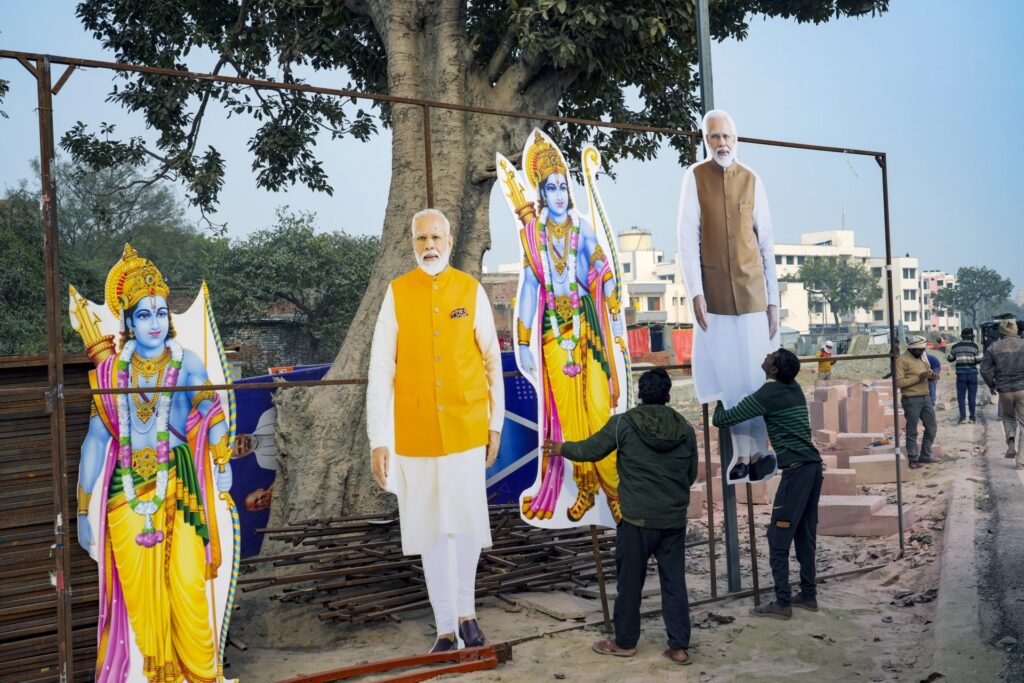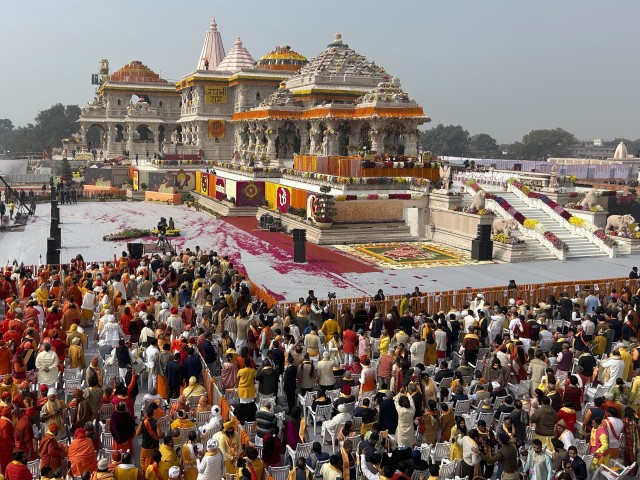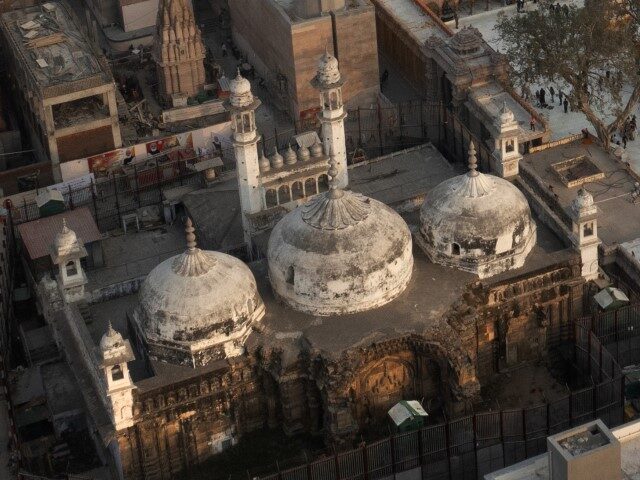The Archaeological Survey of India (ASI) has reportedly discovered the ruins of an ancient Hindu temple beneath a mosque that was built in the city of Varanasi in the 17th Century.
The discovery could be an explosive development in a bitter dispute between Indian Hindus and Muslims, who are already fighting over the site in court.
The structure at the heart of the controversy is the Gyanvapi Mosque, which was built in the Uttar Pradesh city of India in 1669 by the Mughal Emperor Aurangzeb Alamgir.
The Mughal Empire, which lasted from 1526 to 1761, was an expansionist power founded by distant descendants of Genghis Khan. Its rulers were Muslim, but tolerant of other faiths, which helped them manage their conquests more efficiently.
The Mughals were blessed with capable leaders, including Aurangzeb, who was by all accounts a genius – but he was not especially tolerant of other faiths. Some modern scholars argue that his reputation for bigotry is exaggerated, and his real mistake was trying to expand his territory too aggressively, but the empire was unquestionably less harmonious by the time he was finished.
Aurangzeb was an autocratic ruler who discarded many of the sectarian reforms of his predecessors, restored odious customs like the jizya tax on unbelievers, barred other faiths from building temples, and then decided the Hindus and other religions had a few too many temples for his taste. Some of his nobles refused to carry out his orders, and rebellion began brewing in the formerly well-managed Mughal Empire.
Future emperors tried to turn things around and restore the harmony of the old empire, but it was never quite the same again, in part because none of Aurangzeb’s more conciliatory successors were as gifted as the great rulers of old.
The once-mighty empire dissolved into provincial squabbles and its remnants were swept away by a Persian invasion in 1739. The last Mughal emperor was still puttering around in 1858 when the British took control of India.
This rich and tragic history offers something to annoy just about everyone in modern India. Many contemporary Muslims regard Aurangzeb as a legendary hero, while others think he ruined what could have been one of the greatest Muslim states. To modern Hindu nationalists, he is one of the worst despots and oppressors in India’s history. Aurangzeb’s name comes up very frequently in Hindu nationalist speeches, and they are not fond of the Mughal emperors who preceded him, either.
Indian Prime Minister Narendra Modi, for example, denounced Aurangzeb’s “atrocities” and “terror” in a December speech at the disputed mosque in Varanasi.
“He tried to change civilization by the sword. He tried to crush culture with fanaticism,” said Modi. “Even though Aurangzeb severed many heads, he could not share our (Hindu) faith.”
The exact details of the Gyanvapi Mosque’s construction centuries ago has been a subject of great dispute in recent years.
Hindus and Muslims have both made use of the site for prayers, with a single wall separating temple and mosque – but in April 2022, a group of Hindus who worship at the site filed a court petition to gain access to the mosque for prayers, claiming it was built on top of a venerable temple that was razed by Aurangzeb, and sacred Hindu relics were still buried beneath the ground used by Muslims – directly underneath a bathing pool that is essential to Muslim religious practices.
Muslims denounced the claim as one of several attempts by Hindu nationalists to seize control of land by claiming a Hindu temple once existed there. The court decided to order a survey of Gyanvapi by archaeologists to settle the issue.

Workers put up cutouts of Hindu deity Lord Ram and Indian Prime Minister Narendra Modi to mark the opening of a grand temple for Lord Ram in Ayodhya, India, Thursday, Jan. 18, 2024. Coming ahead of the upcoming national elections, the ceremony has welded into a potent mix of religion and statecraft that analysts say will secure an enduring, though contentious legacy for Modi who is seeking a third-consecutive term. (Deepak Sharma, File/AP)
Prior to the beginning of the survey, the major piece of physical evidence introduced by the Hindu petitioners was a shivling, a piece of stonework said to represent the god Shiva, or at least part of him. The shivling and its symbolism became a topic of heated debate on a June 2022 televised panel discussion of the Gyanvapi controversy, which resulted in several people losing their jobs after saying unkind things about each others’ religions.
The survey by ASI has evidently been completed and, while the final report is under wraps for the moment, leaks suggest further evidence of a Hindu temple beneath the mosque has been discovered. The court has ordered the full report to be made public soon.
“Remnants of the statues of Hindu gods have been found in the basements during the court-ordered survey,” declared plaintiffs’ lawyer Vishnu Shankar Jain on Thursday. “It can be said that there existed a large Hindu temple prior to the construction of the existing structure.”
According to Jain, the ASI found evidence that some of the Hindu temple structure was repurposed for the mosque built during Aurangzeb’s reign.
“Whatever the Hindu side is saying is false reporting,” retorted Akhlaq Ahmad, a lawyer for the Muslim petitioners in the case.
The situation is even more fraught because Modi just finished dedicating a massive new Hindu temple in the city of Ayodhya that was built on the ruins of a 16th-century mosque. The mosque was leveled by an angry Hindu mob in 1992. Dismayed Muslims said Modi’s consecration ceremony was intended as a declaration of absolute Hindu religious supremacy in India.

A general view of the audience during the opening of a temple dedicated to Hindu deity lord Ram, in Ayodhya, India, Monday, Jan.22, 2024. Indian Prime Minister Narendra Modi is set to open a controversial Hindu temple built on the ruins of an ancient mosque in the holy city of Ayodhya in a grand event that is expected to galvanize Hindu voters months before a general election. (Rajesh Kumar Singh/AP)

COMMENTS
Please let us know if you're having issues with commenting.